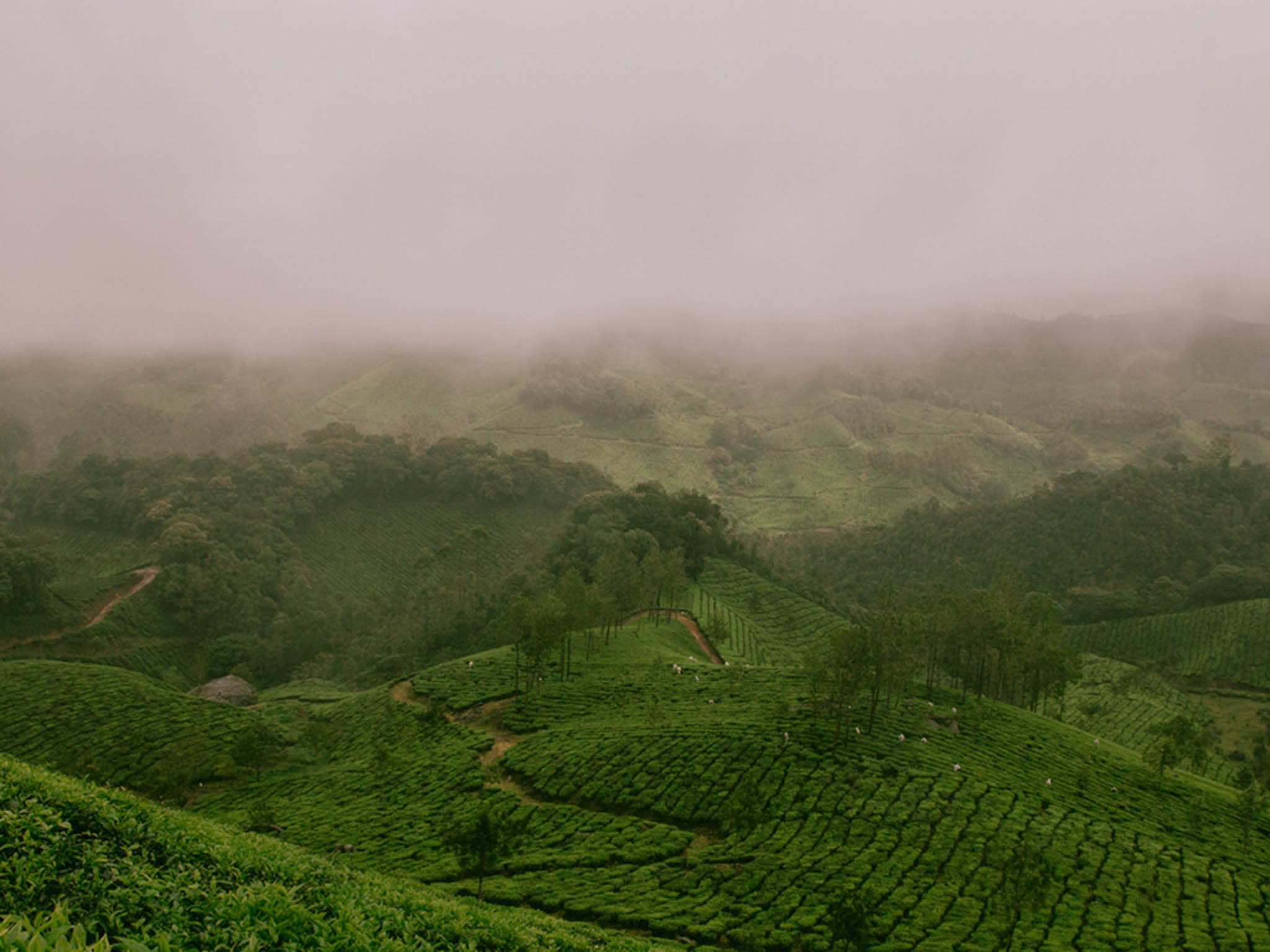Scientists have mapped the DNA of tea – and it could stave off a pending crisis
Sequencing the tea plant’s genome could help scientists breed new varieties that thrive in the degrading soil of tea farms

The world’s most popular drink (after water) is under threat. We already know much about the threat of climate change to staple crops such as wheat, maize and rice, but the impact on tea is just coming into focus. Early research indicates that tea grown in some parts of Asia could see yields decline by up to 55 per cent thanks to drought or excessive heat, and the quality of the tea is also falling.
The intensive use of pesticides and chemical fertilisers in tea plantations has also led to soil degradation at an average annual rate of 2.8 per cent. This also causes chemical runoff into waterways, which can lead to serious problems for human health and the environment.
However, hope may be on the horizon now that scientists at the Kunming Institute of Botany at the Chinese Academy of Sciences have sequenced the entire tea genome. Mapping the exact sequence of DNA in this way provides the foundation for extracting all the genetic information needed to help breed and speed up development of new varieties of the tea plant. And it could even help improve the drink’s flavour and nutritional value.
In particular, the whole tea tree genome reveals the genetic basis for tea’s tolerance to environmental stresses, pest and disease resistance, flavour, productivity and quality. So breeders could more precisely produce better tea varieties that produce higher crop yields and use water and nutrients more efficiently. And they could do this while widening the genetic diversity of tea plants, improving the overall health of the tea plant population.
This is also an important milestone for scientists because it provides a deeper understanding of the complex evolution and the functions of key genes associated with stress tolerance, tea flavour and adaptation.
The new tea genome is very large, with nearly 37,000 genes – more than four times the size of the coffee plant genome. The process of evolution by natural selection has already helped the tea plant develop hundreds of genes related to resisting environmental stress from drought and disease.
These genes are like molecular markers that scientists can identify when selecting plants for use in breeding. This will allow them to be more certain that the next generation of plants they produce will have the genes and so the traits they want, speeding up the breeding process. Sequencing the genome also raises the possibility of using genetic modification (GM) technologies to turn on or enhance desirable genes (or turn off undesirable ones).
The same principles could also be used to enhance the nutritional or medicinal value of certain tea varieties. The genome sequence includes genes associated with biosynthesis. This is the production of the proteins and enzymes involved in creating the compounds that make tea so drinkable, such as flavonoids, terpenes and caffeine. These are closely related to the aroma, flavour and quality of tea and so using genetic breeding techniques could help improve the taste of tea and make it more flavourful or nutritional.
For example, we could also remove the caffeine biosynthetic genes from the tea plant to help breeding of low or non-caffeine varieties. By boosting certain compounds at the same time, we could make tea healthier and develop entirely new flavours to make caffeine tea more appealing.
An estimated 5.56m tons of tea is commercially grown on more than 3.8m hectares of land (as of 2014). And its huge cultural importance, as well as its economic value, mean securing a sustainable future for tea is vitally important for millions of people. So the first successful sequencing of the tea genome is a crucial step to making tea plants more robust, productive and drinkable in the face of massive environmental challenges.
Chungui Lu is a professor of Sustainable Agriculture, Nottingham Trent University. This article first appeared on The Conversation (theconversation.com)
Join our commenting forum
Join thought-provoking conversations, follow other Independent readers and see their replies
Comments
Bookmark popover
Removed from bookmarks